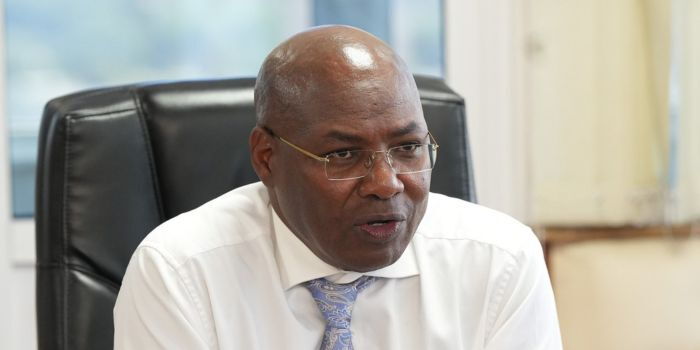Private hospitals in Kenya risk losing their licenses if they fail to follow the Social Health Authority (SHA) regulations on outpatient services.
Health Principal Secretary (PS) Harry Kimtai issued a stern warning on Monday, March 17, cautioning private hospitals against turning away patients seeking outpatient treatment under the new healthcare model.
Speaking in Embu County during the launch of digitization devices for the health sector, Kimtai expressed concern over the reluctance of private hospitals to participate in the SHA outpatient program.
He noted that data gathered by the ministry showed that many private facilities were not offering outpatient services, which are a critical part of primary healthcare funding.
“From the data we have analyzed, we have realized that most private hospitals are not participating in outpatient services, which is the foundation of primary healthcare funding,” Kimtai stated.
He warned that hospitals that fail to comply with SHA regulations could face severe penalties, including the denial of registration and possible closure.
The PS emphasized that the government had already provided private hospitals with sufficient data to help them understand the requirements of the new model. He questioned whether the lack of compliance was due to a misunderstanding of the policy.
“Private hospitals in Kenya are required to offer outpatient services as per the Social Health Authority (SHA) guidelines, which clearly outline how services should be delivered.
We have provided them with the necessary data and will assess whether they are failing to participate due to a lack of understanding of the new system,” Kimtai said.
Kimtai suggested that some private hospitals may be hesitant to comply because patients generally prefer public healthcare facilities under the Taifa Care program.
However, he insisted that the SHA system was designed based on financial data and evidence, ensuring its long-term sustainability.
“If private hospitals continue to resist compliance and refuse to offer outpatient services to Kenyans, they will have no choice but to shut down.
They are also subject to license renewal, which means non-compliance could lead to their closure,” he warned.
The standoff between the government and private hospitals has been ongoing for some time. In February, the Rural and Urban Private Hospitals Association (RUPHA) suspended services under SHA, citing financial concerns. The suspension was later lifted after President William Ruto intervened.
One of the biggest concerns raised by private hospitals is the issue of unpaid debts, some dating back to 2017.
RUPHA Chairperson Brian Lishenga revealed that many hospitals are struggling with financial challenges, including bank defaults and shortages of essential medicines, due to delayed payments from the government.
Under the SHA model, outpatient services are capped at KSh 2,000 per visit, with beneficiaries allowed a maximum of four visits per year at Level 2, 3, and 4 primary healthcare facilities.
Private hospitals argue that this model is financially unsustainable for them, making it difficult to continue providing services under the program.
Join Gen z and millennials TaskForce official 2025 WhatsApp Channel To Stay Updated On time the ongoing situation https://whatsapp.com/channel/0029VaWT5gSGufImU8R0DO30


